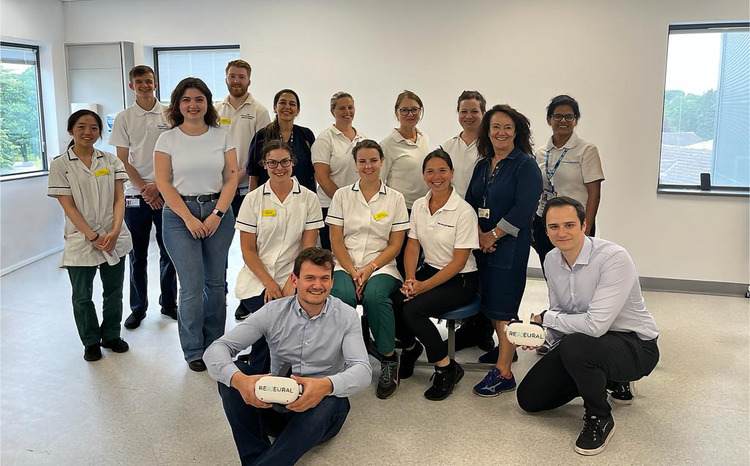Storm clouds break over Manchester
- 17 June 2016

It was, perhaps, appropriate that just as Jim Mackey stood up to speak at the NHS Confederation’s annual conference, a huge clap of thunder rolled overhead.
Over the previous two days, it had felt as if the meteorological and the NHS financial weather had been worsening in Manchester, and as Mackey spoke the impact of both started drumming down on the conference hall.
Mackey started by saying he agreed with pretty much every word of a preceding presentation by Anita Charlesworth from the Nuffield Trust, who had laid out the scale of the financial challenge facing the health service in four stark graphs.
The acute sector finished the previous year with a headline deficit of £2.4 billion, she said; although the underlying deficit was probably worse than that.
The deficit was due to eat up almost all of the ‘transformation fund’ that the NHS secured as part of its settlement with the Treasury, which included a ‘front-loaded’ £8 billion towards the £30 billion gap between funding and demand that is projected by 2020-21.
That would cut into the money available for the prevention and service transformation that the ‘Five Year Forward View’ expects to close up some of the remaining £22 billion; with the rest coming from yet further squeezes on staff pay and from trusts making 2% year on year efficiency savings – having managed 1.4% in recent years.
Oh yes, and that was still the good news, because the NHS is facing a ‘U shaped’ settlement, in which this is the good year and there will be less money around in 2019 and 2020.
“I am not going to say there is lots of fairy dust to sprinkle around and that everything is going to be lovely, because it’s not,” said Mackey.
However, he insisted there were “good things going on, and that the NHS could learn from them. Wexham Park Hospital had been turned around and was out of special measures. NHS Bolton Clinical Commissioning Group had dug itself out of financial trouble. Devon was going in the right direction after ‘success regime’ help.
It was hard not to feel that his message was that if they could do it, so could anyone else; preferably without moaning. Not least because that was pretty much the message of most of the keynote speakers at Manchester Central.
Hunt and Wachter lift the purdah curtain: a little
That included health secretary Jeremy Hunt, although he started by extolling the progress the NHS had made on improving mental health and cancer services over six years, and spent less time dwelling on the deficit figures than on what he hoped the health service would do about them.
This included acting on Lord Carter’s latest report on efficiency and on tackling clinical variation. At one point, Hunt put up a graph purporting to show that this could make a huge difference, because trusts rated “inadequate” by the Care Quality Commission were five times more likely to be in deficit than those with an “outstanding” rating (an effect that may have required a lot of averaging).
It also included implementing technology. “Providers need to understand the power of modern technology to support change,” Hunt said, adding that he had asked Dr Robert Wachter, the US author of a book called ‘The Digital Doctor’ to review NHS IT with a view to helping it to do just that.
Wachter, he added, was unable to unveil his report at the conference as planned, because of the ‘purdah’ rules that prevent major announcements and civil service report launches in the run up to an election – or, in this case, the EU referendum.
But he had already uncovered a number of IT “paradoxes” that meant that while GPs had excellent IT, “hospitals still put patient notes in cardboard folders at the end of the bed”, and that while the NHS is a world leader in genomics research, it also leads the world “in the purchase of fax machines.”
Perhaps surprisingly, Hunt said this had made him more determined than ever to deliver on his vision of a ‘paperless’ NHS. As he noted, this had probably been one of his “bolder promises’, particularly as it was made against the background of the National Programme for IT in the NHS.
Otherwise, Hunt could only point to things being as bad or worse elsewhere, and to inspirational quotes by way of encouragement. Italy, he pointed out, had its own doctors’ strike. France’s healthcare system had a massive deficit. The US had challenges with ‘Obamacare.’
Mohammed Ali had said some really good things about overcoming the impossible; and the NHS should take note because he was still convinced that it could deliver on its ambition to be “the safest healthcare system in the world.”
A focus on IT: but the right IT?
The purdah rules meant there was relatively little further detail on what the Wachter Review will contain. Wachter himself seemed distinctly unimpressed with this, joking that he had developed a terrible sore throat by watching the Remain and Brexit flotillas headed by Bob Geldof and Nigel Farage battle it out on the Thames.
He did indicate that it will try and learn from both the experience of both NPfIT which, he noted, had delivered some good connecting infrastructure, even if it largely failed to get electronic patient record systems into hospitals, and from the US experience of pumping billions into healthcare digitisation in response to the financial crash, which had the inverse effect.
In ten ‘insights’ into his report, he also indicated it would emphasise that there needs to be a new focus on usability, and that clinical engagement is essential, not just to get systems in but to overcome the ‘productivity paradox’ seen in other industries, in which IT investment fails to deliver efficiencies unless and until people star using it to change the way they work.
Away from Wachter’s session, there was probably more focus on IT than is usual at NHS Confederation conferences; even if the huge US firms that used to set up stall in the exhibition hall in the NPfIT era are now conspicuous by their absence (as are brash accountancy firms and mega consultancies).
For example, at a break-out session on the vanguards, integration pioneers, and many other projects now running to test out Forward View ideas, Robert Stewart from Kent and Medway Integration Partners talked about the moves it was making, based on Swedish experience, to shift care out of hospitals and into the community.
It is setting up a “home from home” integrated community healthcare centre, and working on the ‘Esther’ programme to build the resilience of individuals. Both depend on IT, because the healthcare system has to know where people are, and provide them with the right information to make them “confident” about not relying on hospital care.
Similarly, in the same session, Josh Potter talked about Tower Hamlets’ long-running efforts to risk stratify its population and offer virtual ward and other forms of non-hospital support, which are now being enhanced by learning from New York’s Medicaid reforms, which are heavily dependent on “superb” linked data sets; of a kind the NHS doesn’t really have yet.
However, there was a palpable concern that the centre remains focused on the acute sector, when it is inoperable systems that work across healthcare communities, and far, far better population level data that healthcare systems really need.
Hunt was asked about integration, and said in response that: “GPs have very, very good records, and we will be standardising on that record and making it available to ambulance trusts and acute trusts and that is very, very important.” But: “We have a big job to do in hospitals, where the potential of IT is huge, and Bob [Wachter] is helping us with that.”
Hard sledding
NHS England’s chief executive, Simon Stevens, also had some positive things to say about technology in his closing keynote; promising a new med tech fund to support initiatives such as ‘an ECG on your iPhone’ that, he claimed, would enthuse clinicians and provide a useful counterpoint to all that doom and gloom and “saving money by conventional means”.
But it was a bright spot in an otherwise unrelentingly grim focus on the finances that made Mackey’s efforts look positively sunny. At the start of his speech, the most positive thing Stevens found to say about the NHS’ performance over the past few years was that it had avoided the big upswing in cancer mortality seen in many other OECD countries since the economic crash that started in 2008.
After that, it was straight into a warning that once that EU referendum was out of the way, there would be a “reset” on NHS finances that, it was implied, should encourage acute trusts to start getting their houses in order first.
Otherwise, he reiterated Mackey’s ‘do to’ list: read Carter, address variation and complete the work on the sustainability and transformation plans that are also key to releasing IT cash, since the local digital roadmaps that CCGs were told to draw up last year are now tied to them.
He indicated that he had personally “set aside a big part” of July to go through the plans, and that they were likely to be signed off in waves over the summer and autumn, depending on how much more work NHS England thought the 44 areas involved still needed to do.
And he not only acknowledged that these would mean big changes, but put them in NHS-epochal terms. The Lansley reforms of 2012 were the “high-water mark” of an old way of doing things, he said, that was focused on access and choice for patients, and autonomy for NHS organisations, subject to provider specific regulation.
The new way of doing things will require organisations to focus on efficiency, on working across boundaries, and on being regulated accordingly (even if the last bit still needs some work). It will also mean healthcare communities coming out the other side looking very different from each other, with acute trusts leading in some areas and primary care in others. “Horses for courses” as he put it.
And none of it is going to be fun. The only question, Stevens said, was “if not now, when? Often, we have known about these problems for years,” he said. “With our backs against the wall, I ask again: if not now, when?”




